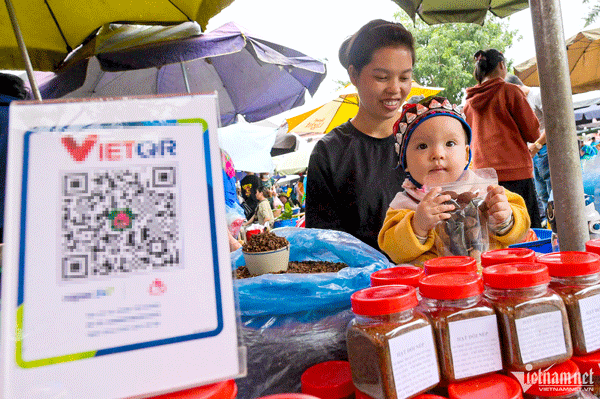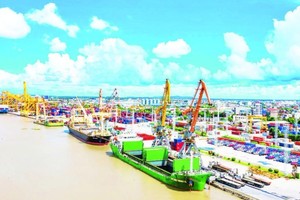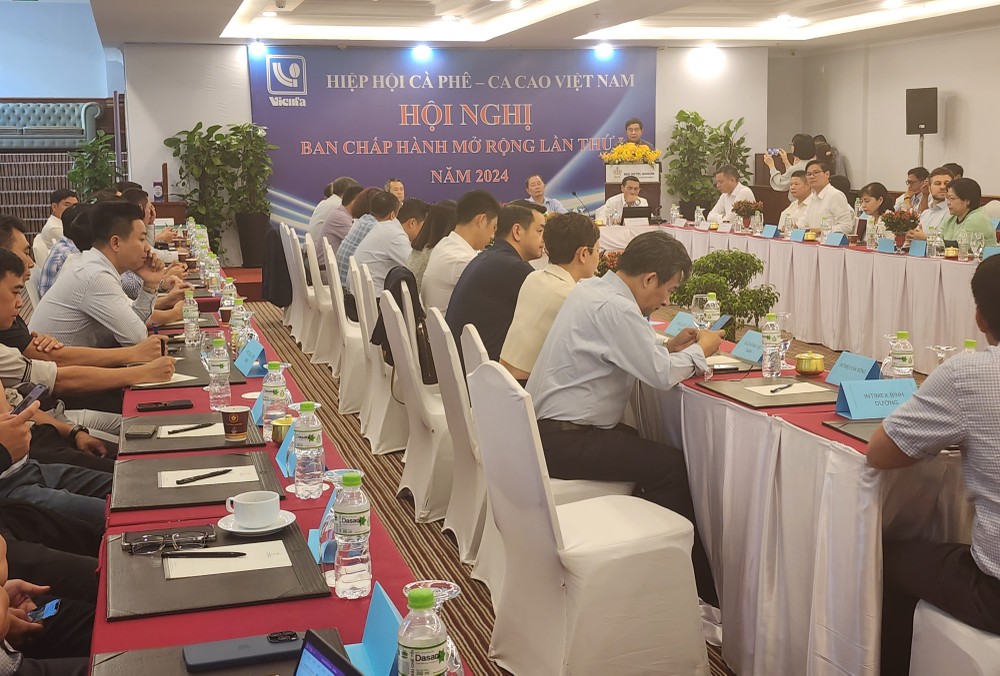
On April 11, during the expanded Executive Committee meeting of the Vietnam Coffee-Cocoa Association (VICOFA) in Ho Chi Minh City, Mr. Do Ha Nam, Vice Chairman of VICOFA and Chairman of the Board of Directors of Intimex Group, raised concerns about the rapid increase in coffee prices and coffee excessively high price levels which have resulted in intense competition and contract breakdown, tarnishing the reputation of the Vietnamese coffee industry.
According to Mr. Do Ha Nam, statistical data indicates that in March 2024, Vietnam exported approximately 185,281 tons of coffee, generating export revenue of around US$680.86 million. Despite an 11.9 percent decrease in volume compared to the same period in 2023, there was a notable 41.1 percent increase in export value. Over the first six months of the 2023-2024 coffee crop season, Vietnam exported over 956,000 tons of coffee, with revenue exceeding $3 billion. Notably, Robusta coffee accounted for the majority of these exports, with over 825,000 tons and revenue surpassing $2.3 billion.
Nam noted that, in March 2023, domestic coffee prices stood at VND47,000 per kg. By October 2023, it climbed to VND58,000 per kg and, now reaches VND105,000 per kg. Such rapid and steep price hikes (nearly tripling) present significant challenges for businesses. Consequently, companies must mobilize substantial capital, but the credit limits offered by banks to enterprises have not increased.
Furthermore, the swift rise in coffee prices poses high risks for purchasing agents who export through intermediaries and traders. Some purchasing agents and businesses in regions with coffee resources have failed to fulfill delivery obligations within the agreed-upon timeframe specified in purchasing contracts with processing and exporting enterprises, as well as foreign-invested enterprises, despite discussions between parties on risk-sharing, resulting in substantial losses for buyers and undermining the credibility of the Vietnamese coffee industry.
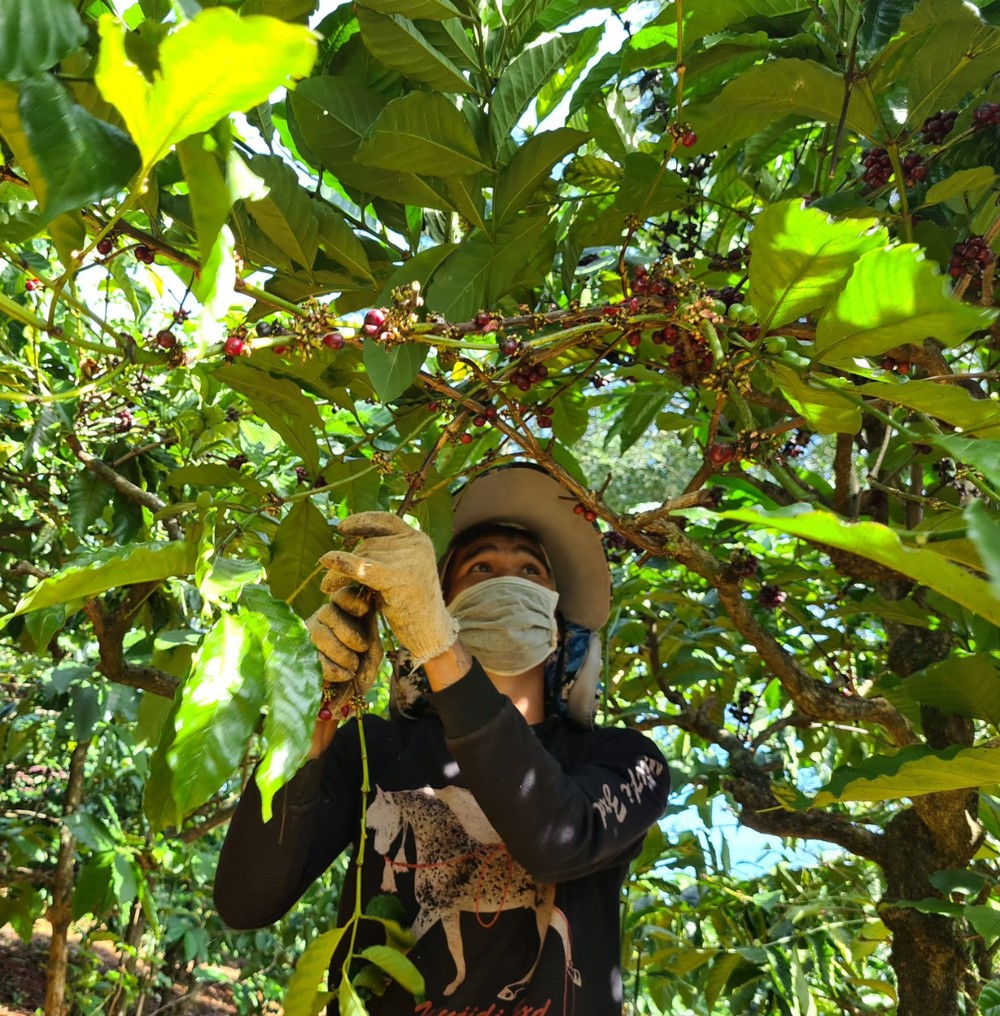
Mr. Thai Nhu Hiep, Director of Vinh Hiep Company Limited and Vice Chairman of VICOFA, remarked, "The coffee market varies from year to year, but the current unprecedented high prices are abnormal. We are witnessing prices ranging from VND105,000 to VND110,000 per kg, possibly even reaching VND120,000 per kg. Continuous price hikes are undesirable, so measures must be implemented to stabilize prices for the benefit of all stakeholders."
A representative from Nestle Vietnam added that the inability to procure coffee due to extremely high prices has compelled their company to seek supplies from other countries to maintain smooth factory operations. In 2023, Nestle Vietnam diversified its sourcing, and this year, they are forced to continue the practice to ensure uninterrupted production.
The conference was attended by representatives from most major coffee roasting companies, as well as FDI enterprises in Vietnam. These entities unanimously voiced concerns over the excessively high coffee prices, which are exerting significant pressure on the supply chain. Businesses have been struggling to manage delayed deliveries and contract cancellations from small, unreliable suppliers. However, given the current exorbitant prices of Vietnamese coffee, it is likely that imports from other countries will increase for roasting and processing purposes in Vietnam.
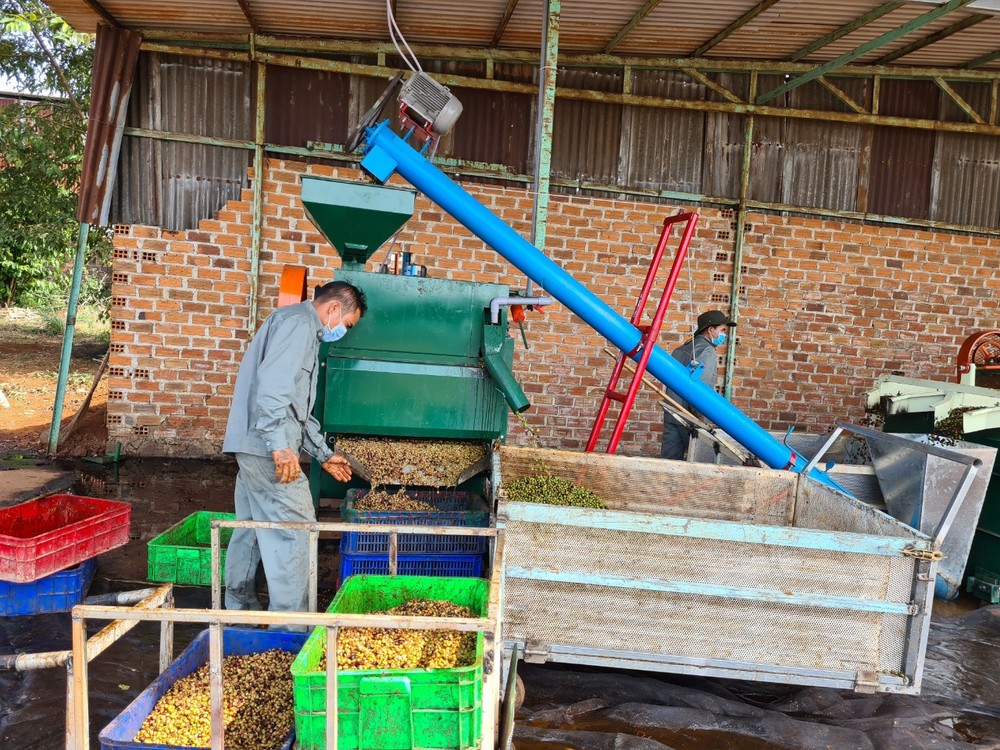
According to businesses and representatives from ministries, sectors, and localities, the coffee supply continues to face challenges in the upcoming crop season due to a projected decrease in cultivated area from 700,000 ha to 600,000 ha. Additionally, severe drought conditions caused by prolonged heat and insufficient irrigation water are prevalent in the Central Highlands. Furthermore, despite the significant increase in coffee prices, competitiveness remains lower compared to certain other crops, especially durian, leading to prolonged difficulties.
Mr. Nguyen Nam Hai, Chairman of VICOFA, advised that for the coffee industry to achieve sustainable growth, all parties within the value chain must share risks and strengthen collaboration. Specifically, he suggested that FDI enterprises increase cooperation with VICOFA to engage directly with reputable large-scale exporters and avoid dealing with small, unreliable suppliers.
VICOFA's leadership acknowledged that, in the current circumstances, the association alone cannot address the challenges; a unified industry approach is necessary. Additionally, they stressed the importance of financial solutions to facilitate early procurement of coffee beans and stabilize prices.




